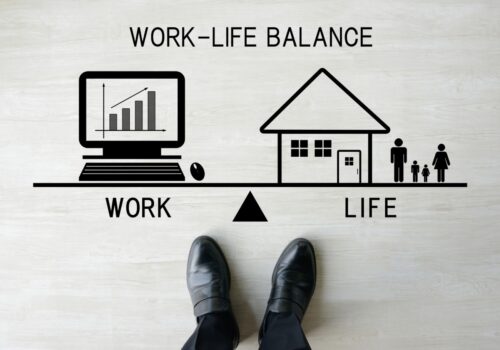“Happiness doesn’t necessarily lead to increased productivity….” Andre Spicer, Carl Cedestrom
This comes as a shocker, but do you know, statistics say that happy employees are only 13% productive. A bombshell to many, it has often been promoted and generally accepted that job satisfaction and happiness in the workplace lead to productivity. However, one study clearly proves that being too happy in the workplace is negative. There is such a thing called negative positivity, which makes people stifle their genuine concerns by adopting a shell of positivity. In such a situation, positivity is a foolish soldier on a battlefield with no fear. Worry and fear need not control you, but their influence on practical and mentally healthy individuals triggers solutions that focus on a favorable outcome. Thus, pseudo-happiness leads to poor performance and inefficiency.
Although the happy-at-work craze promises increased productivity, improved employee retention, and better overall well-being, it is essential to realize how the pursuit of constant Happiness at work may have a dark side. According to the study, “pursuing happiness is not always a good idea and can drain the sense of joy we usually get from the really good things we experience.”
The Myth of Workplace Happiness
The current trend of happiness in the corporate world is to use various tools and strategies to encourage workplace happiness, reduce stress, and make work enjoyable. From a surface perspective, Happiness reaps the benefits of increased productivity, higher retention rates, and lower healthcare expenses. But now several experts realize that happiness does not always result in productivity.
It is more of a myth that needs restructuring of what entails true happiness at work. Research by André Spicer, professor of organizational behavior at Cass Business School in London, and Carl Cederström, associate professor of organization theory at Stockholm University, is making bosses sit up and notice how the effect of happiness on productivity remains murky. The myth of happiness could go wrong, which is an obstacle with contented employees feeling falsely adequately satisfied with present situations. Happiness can prevent the urge to do better. Here are some reasons why happiness is more of a hindrance in the workplace
Employees Are Always Under Pressure to Be Happy
A contradictory development, companies are investing in coaching sessions to ensure an employee is stressed-free. The cardinal mistake, however, is the Happiness itself which is enforced on employees leading to further pressure and unrealistic expectation. After all, work is diverse and stressful. Enforcing Happiness creates further pressure, with employees preferring not to voice their concerns leading to emotional exhaustion and burnout.
Happy Workers Do Not Mean Productive Workers
Happiness till now was supposed to build enthusiasm in the workplace, but the pursuit of Happiness is itself a taxing one. French philosopher Pascal Bruckner said, Unhappiness is not only Unhappiness; it is, worse yet, a failure to be happy.” This means that you only make things worse by expecting to be happy and demanding more from yourself.
It Distracts from Genuine Problems
Obsession with Happiness leads to negative emotions, a natural part of the human experience. Emotional responses like frustration, disappointment, and anger are normal at work. Thus, when an organization prioritizes happiness above everything else, they suppress emotions and discourage discussion that could create a positive atmosphere. As a result, employees might feel isolated and unsupported when they experience difficulties, which can negatively impact their mental well-being.
Critical workplace issues such as toxic environments, inadequate work-life balance, and lack of growth opportunities remain in the background when employees are subjected to excessive strategies to make them happy. Happiness and perks are even more dangerous, making happiness only a short-term goal with temporary employee morale boosts. This hinders the potential for real and lasting positive change. Forced Happiness leads to the following:
- Unrealistic situations
- Dissatisfaction
- Disappointments
- Self-doubt
- Poor problem solving
- Poor job satisfaction
- Suppresses creativity
- Gives a false sense of achievement
- Low productivity
- No innovation
- Employees cannot display their authentic selves
Why Dismissing the Myth of Corporate Happiness is Important
We cannot deny how work culture results from feel-good employees, but there is always the risk of indulging in false happiness. Cultivating a positive work culture is essential for employee well-being and organizational success. But, at the same time, the aim should be a balanced approach that acknowledges a range of emotions that can address employees’ concerns towards genuine Happiness. Here are how organizations can let go of this trend of mythical happiness to replace it with a work culture that recognizes the bad and how to overcome it.

Encourage Authentic Emotions
Organizations do well by creating a comfortable environment where employees can express their genuine emotions without fear of being judged. Honest communication leads to psychological security and an employee who won’t bury their heads in the sand but take a difficult situation head-on to overcome and achieve a more fruitful result.
Focus on Wellbeing
Promoting well-being among a workforce with support and resources is excellent for stress management and improved mental health. A balance in the workplace stimulates genuine innovation, creativity, employee focus, skill development, and growth.
Avoid The Expectation Trap
Employees who expect their work to make them happy will also expect a boss to act the same. According to research, employees in this scenario look upon their bosses as surrogate spouses or parents. When the employee does not receive the expected response from a boss, they become psychologically confused with a feeling of betrayal and neglect. Remember, your boss is not your family; they are your boss responsible to the upper hierarchy for performance. Their job is to see how employees can be more productive. Perceiving a boss this way reduces the stress and disappointment of criticism.
Address Core Issues
Focusing on the core issues within projects or the workplace allows one to see the problems that cause Unhappiness. Not shying away from problems but rather resolving conflict, encouraging communication, healthy criticism, and acknowledging what needs to be done makes a more successful organization. Organizations would do well by investing in inclusion programs and leadership development to ensure a healthier environment.
Embrace Positive Moments
While constantly trying to be happy at work is not advised, embracing, and celebrating achievements and milestones is good. It helps in cultivating self-worth and self-value in employees.
Conclusion
It cannot be stressed enough how forced happiness is a bad thing. According to Spicer and Cedestrom, “the less we actively pursue happiness through our jobs, the more likely we are to experience a sense of “joy which is spontaneous and pleasurable, and not constructed and oppressive.”
Although well-intentioned, the pursuit of happiness in the workplace is a flowed exercise burdening employees with false expectations. Employees thinking everything is hunky dory became lazy and victims of their thought processes. Letting go of the myth of happiness, employees then foster a healthier, more genuine workplace where they can thrive personally, creatively, and professionally.
















